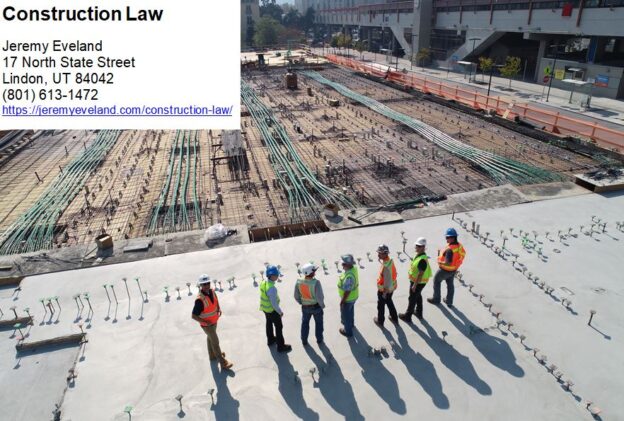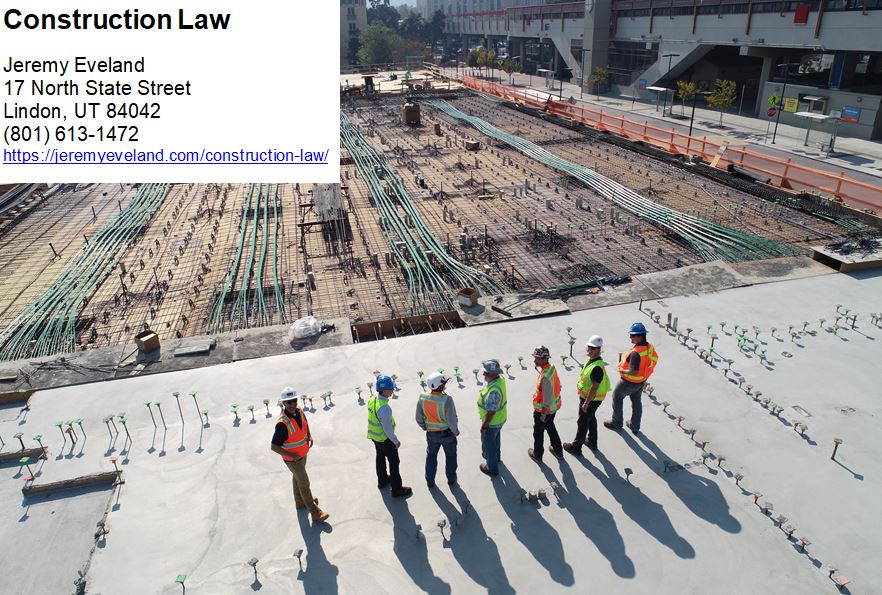In today’s digital age, the collection and use of data have become integral to the workings of businesses across industries. As a contractor, it is crucial to understand the laws and regulations governing data collection to ensure compliance. This article aims to provide contractors with a comprehensive overview of data collection compliance, highlighting key considerations and providing guidance on navigating the complex legal landscape. By familiarizing yourself with these regulations, you can safeguard your business against potential legal repercussions and build trust with clients and partners. Throughout the article, we will address frequently asked questions and provide concise answers to help you navigate this important aspect of your business operations.
Understanding Data Collection Compliance for Contractors
In today’s digital age, data collection has become an integral part of business operations. Contractors, who often handle sensitive information on behalf of their clients, must prioritize data collection compliance to ensure legal and ethical practices. This article aims to provide a comprehensive understanding of data collection compliance for contractors, including its importance, legal framework, responsibilities, best practices, industry-specific considerations, benefits, and FAQs.
Why Data Collection Compliance is Important for Contractors
Data collection compliance is crucial for contractors for several reasons. Firstly, it ensures legal compliance with privacy laws and regulations, protecting both the contractor and their clients from potential legal liabilities and reputational damage. Compliance also fosters trust between contractors and their clients, who rely on them to handle sensitive data securely. Additionally, compliance promotes efficient data management practices, minimizing the risk of data breaches and unauthorized access. By adhering to data collection compliance standards, contractors can demonstrate their commitment to protecting customer data and maintaining high ethical standards.
What is Data Collection Compliance?
Data collection compliance refers to the adherence to legal, industry, and ethical standards governing the collection, storage, processing, and protection of data. It involves understanding and implementing privacy laws and regulations that dictate how personal information should be managed. Compliance requires contractors to have a robust understanding of the legal framework and take necessary measures to ensure data security, privacy, and confidentiality.
The Legal Framework for Data Collection Compliance
Data collection compliance is governed by a complex legal framework that varies across jurisdictions. Contractors must familiarize themselves with the applicable laws and regulations specific to their operating region. In general, data protection laws outline the rights of individuals concerning their personal data and impose obligations on organizations that collect and process this data. Some key privacy laws affecting contractors include the General Data Protection Regulation (GDPR) in the European Union, the California Consumer Privacy Act (CCPA) in California, and the Health Insurance Portability and Accountability Act (HIPAA) in the United States.
Key Privacy Laws Affecting Contractors
Contractors must be aware of and comply with the privacy laws applicable to their business operations. Understanding these laws helps contractors establish appropriate data collection processes and implement necessary safeguards. Key privacy laws that commonly affect contractors include:
-
General Data Protection Regulation (GDPR): The GDPR applies to contractors who handle the personal data of individuals residing in the European Union. It establishes strict regulations regarding data collection, storage, processing, and individual rights.
-
California Consumer Privacy Act (CCPA): The CCPA applies to contractors who collect or process personal information of California residents. It grants consumers certain rights over their data and imposes obligations on businesses to be transparent about data practices.
-
Health Insurance Portability and Accountability Act (HIPAA): HIPAA applies to contractors within the healthcare industry who handle protected health information. It sets standards for the security, privacy, and integrity of health-related data.
Other important privacy laws include Canada’s Personal Information Protection and Electronic Documents Act (PIPEDA), Brazil’s General Data Protection Law (LGPD), and Australia’s Privacy Act.
Understanding Personal Data and Privacy
Personal data includes any information that can directly or indirectly identify an individual, such as names, addresses, social security numbers, or IP addresses. Contractors must understand the concept of personal data to ensure compliance with privacy laws. Privacy refers to an individual’s right to control the collection, use, and dissemination of their personal information. Contractors must uphold individuals’ privacy rights by implementing strict data protection measures and obtaining valid consent before collecting or processing personal data.
Contractors’ Responsibility for Data Collection Compliance
As data controllers or processors, contractors have legal responsibilities to ensure compliance with data collection regulations. Contractors must have a clear understanding of the data they collect, how it is processed, and how long it is retained. They should establish processes, policies, and safeguards to protect data from unauthorized access, loss, or disclosure. Contractors should also obtain valid consent from individuals before collecting their personal data and inform them about the purposes and scope of data collection.
Ensuring Data Security and Protection
Contractors must prioritize data security and protection to comply with data collection regulations. This includes implementing appropriate technical and organizational measures to safeguard data against unauthorized access, loss, or alteration. Contractors should encrypt sensitive data, restrict access based on role and need, and regularly update security systems. Storing data securely, whether on-premises or in the cloud, is essential in maintaining data confidentiality and integrity.
Implementing Effective Data Collection Practices
To achieve data collection compliance, contractors should implement effective practices that align with legal requirements and industry standards. Some recommended steps include:
Conduct a Data Audit
Start by conducting a comprehensive audit of the data collected, processed, and stored. This helps identify potential privacy risks, gaps in compliance, and areas for improvement.
Document Data Collection Processes and Policies
Create clear and transparent policies and procedures for data collection, processing, and retention. Document these practices and ensure employees are trained on their implementation.
Obtain Consent for Data Collection
Only collect personal data with valid consent from individuals. Ensure individuals are fully informed about the purposes and scope of data collection and have a clear option to withdraw consent.
Implement Privacy and Security Measures
Establish privacy and security measures, such as data encryption, access controls, and regular security assessments. Ensure that collected data is protected throughout its lifecycle.
Train Employees on Data Collection Compliance
Educate employees on data collection compliance, privacy laws, and best practices. Regular training reinforces the importance of data protection and helps prevent accidental breaches or non-compliant actions.
Regularly Review and Update Compliance Practices
Data collection compliance is an ongoing effort. Regularly review and update data collection processes, policies, and security measures to adapt to new technologies, regulations, and business practices.
Consequences of Non-compliance with Data Collection Regulations
Non-compliance with data collection regulations can have severe consequences for contractors. These may include significant financial penalties, legal liabilities, damage to reputation, loss of customer trust, and business disruptions. Contractors may face regulatory investigations, lawsuits, or contractual disputes due to non-compliance. It is essential for contractors to prioritize data collection compliance to mitigate these risks and uphold their legal and ethical obligations.
Common Challenges in Data Collection Compliance for Contractors
Contractors face various challenges when striving for data collection compliance. Some common challenges include:
-
Complex and Evolving Regulations: Complying with the ever-changing landscape of privacy laws can be challenging. Contractors must stay up to date with new regulations and adapt their practices accordingly.
-
Managing Consent: Obtaining valid consent while maintaining transparency and providing clear options for withdrawal can be complex. Contractors must ensure they have robust consent mechanisms in place.
-
Data Security Risks: Protecting data from security breaches, accidental disclosures, or unauthorized access is a constant challenge. Contractors must implement effective security measures to prevent data breaches.
-
Data Retention and Disposal: Managing data retention periods and ensuring secure disposal of data can be complex, particularly when dealing with large volumes of data. Contractors must define and implement appropriate policies in this regard.
-
Vendor Compliance: Contractors may rely on third-party vendors or subcontractors who handle data on their behalf. Ensuring these vendors comply with data collection regulations presents additional challenges.
Steps to Achieve Data Collection Compliance
Achieving data collection compliance requires a structured approach. Contractors should consider the following steps:
Conduct a Data Audit
To understand the scope of data collection, contractors should conduct a data audit. Identify what data is collected, why it is collected, how it is processed, who has access to it, and how long it is retained. This audit helps pinpoint areas that may require enhancements for compliance.
Document Data Collection Processes and Policies
Establish clear policies and procedures for data collection, processing, and retention. Document these processes to ensure consistency and transparency. Include details on obtaining consent, data storage practices, security measures, and mechanisms for data subject requests.
Obtain Consent for Data Collection
Ensure you have valid and properly obtained consent from individuals before collecting their personal data. Consent should be freely given, specific, informed, and unambiguous. Clearly communicate the purposes and scope of data collection, providing individuals with the option to withdraw consent.
Implement Privacy and Security Measures
Implement robust privacy and security measures to protect the data you collect. This includes encryption, access controls, regular security assessments, and adherence to industry best practices. Regularly update security systems and ensure data transfers are secure.
Train Employees on Data Collection Compliance
Educate employees on data collection compliance, privacy laws, and best practices. Employees should understand their roles and responsibilities, including proper data handling, secure storage, and reporting of any data incidents or breaches. Regular training helps promote a culture of data compliance.
Regularly Review and Update Compliance Practices
Data collection compliance is an ongoing effort. Regularly review and update your data collection processes, policies, and security measures to ensure they align with new regulations, emerging technologies, and changing business practices. Stay informed about industry trends and consult legal experts when necessary.

Best Practices for Data Collection Compliance
In addition to the steps outlined above, contractors can adopt several best practices to enhance data collection compliance:
Adopting Privacy by Design Principles
Privacy by Design principles promote embedding privacy and data protection considerations into the initial design of systems, processes, and products. By integrating privacy as a core principle, contractors can prioritize data protection from the outset, reducing the likelihood of privacy breaches.
Appointing a Data Protection Officer
Consider appointing a dedicated Data Protection Officer (DPO) or privacy professional within your organization. The DPO ensures compliance with relevant privacy regulations, serves as a point of contact for individuals and authorities, and provides guidance on data protection matters.
Building Transparent Data Collection Practices
Transparency is vital in data collection compliance. Clearly communicate your data collection practices, including the purposes, methods, and legal basis for collection. Provide individuals with clear and concise privacy notices, enabling them to make informed decisions about their personal data.
Maintaining Data Accuracy and Minimization
Regularly review and update the accuracy of the data you collect. Only collect the necessary data for the intended purposes, minimizing the collection of excessive or irrelevant information. Adopt procedures to rectify or delete inaccurate data promptly.
Developing Incident Response Plans
Data breaches and incidents can occur despite robust security measures. Develop an incident response plan outlining the steps to be taken in the event of a data breach. This includes notifying affected individuals, investigating the breach, mitigating damages, and cooperating with relevant authorities.
Data Collection Compliance in Specific Industries
Different industries have specific regulations and considerations regarding data collection compliance. Here are some key aspects to consider in specific sectors:
Data Collection Compliance in Healthcare Sector
Contractors operating in the healthcare sector must comply with the applicable privacy laws, such as HIPAA in the United States. They should ensure secure handling of protected health information, implement stringent access controls, and maintain data confidentiality.
Data Collection Compliance in Financial Services
Contractors in the financial services sector must comply with various regulations, such as the Gramm-Leach-Bliley Act (GLBA) in the United States. They should establish robust data security measures, regularly audit data processes, and protect sensitive financial data from unauthorized access.
Data Collection Compliance in E-commerce
Contractors involved in e-commerce must comply with privacy laws specific to their operating jurisdiction, such as GDPR in the European Union or CCPA in California. They should implement secure payment systems, protect customer data, and inform individuals about data sharing practices with third parties.
Data Collection Compliance in Education Sector
Contractors operating in the education sector should comply with applicable privacy laws, such as the Family Educational Rights and Privacy Act (FERPA) in the United States. They should protect student information, obtain appropriate consent, and ensure secure data storage and sharing practices.

The Benefits of Data Collection Compliance
Complying with data collection regulations provides several benefits to contractors:
Enhanced Reputation and Trust
Data collection compliance helps build trust with clients and customers, enhancing your reputation as a reliable and responsible contractor. Demonstrating a commitment to data protection and privacy fosters positive relationships based on trust.
Protection from Legal Liabilities
By complying with data collection regulations, contractors minimize the risk of legal liabilities and potential penalties. Compliance safeguards against lawsuits, regulatory actions, and reputational damage arising from non-compliant data practices.
Improving Data Management and Efficiency
Compliance with data collection regulations encourages contractors to establish efficient data management practices. Implementing structured processes, clear policies, and appropriate security measures enhance data accuracy, accessibility, and overall efficiency.
Ensuring Customer Satisfaction
Data collection compliance enables contractors to respect individuals’ privacy rights and protect their personal information. By safeguarding customer data, contractors can provide a secure and satisfactory experience, strengthening customer trust and loyalty.
FAQs about Data Collection Compliance for Contractors
What is considered personal data?
Personal data includes any information that can directly or indirectly identify an individual. This can include names, addresses, contact details, social security numbers, IP addresses, and more.
What are the penalties for non-compliance with data collection regulations?
Penalties for non-compliance with data collection regulations vary depending on the applicable laws and the severity of the violation. Penalties can include significant fines, regulatory actions, legal liabilities, loss of reputation, and business disruptions.
Can contractors transfer data internationally?
Contractors may transfer data internationally, but they must ensure compliance with data protection laws in both the originating and receiving jurisdictions. Adequate data protection safeguards, such as standard contractual clauses or binding corporate rules, may be required for such transfers.
Are there any exemptions for small businesses in data collection compliance?
The applicability of exemptions for small businesses varies based on jurisdiction and specific regulations. While some laws may provide limited exemptions for small-scale data processing, it is crucial for contractors to consult legal experts to determine their compliance obligations.
How often should data collection policies be reviewed and updated?
Data collection policies should be reviewed and updated regularly, considering changes in regulations, industry practices, and technological advancements. It is recommended to conduct regular reviews, at least annually, to ensure ongoing compliance.
















